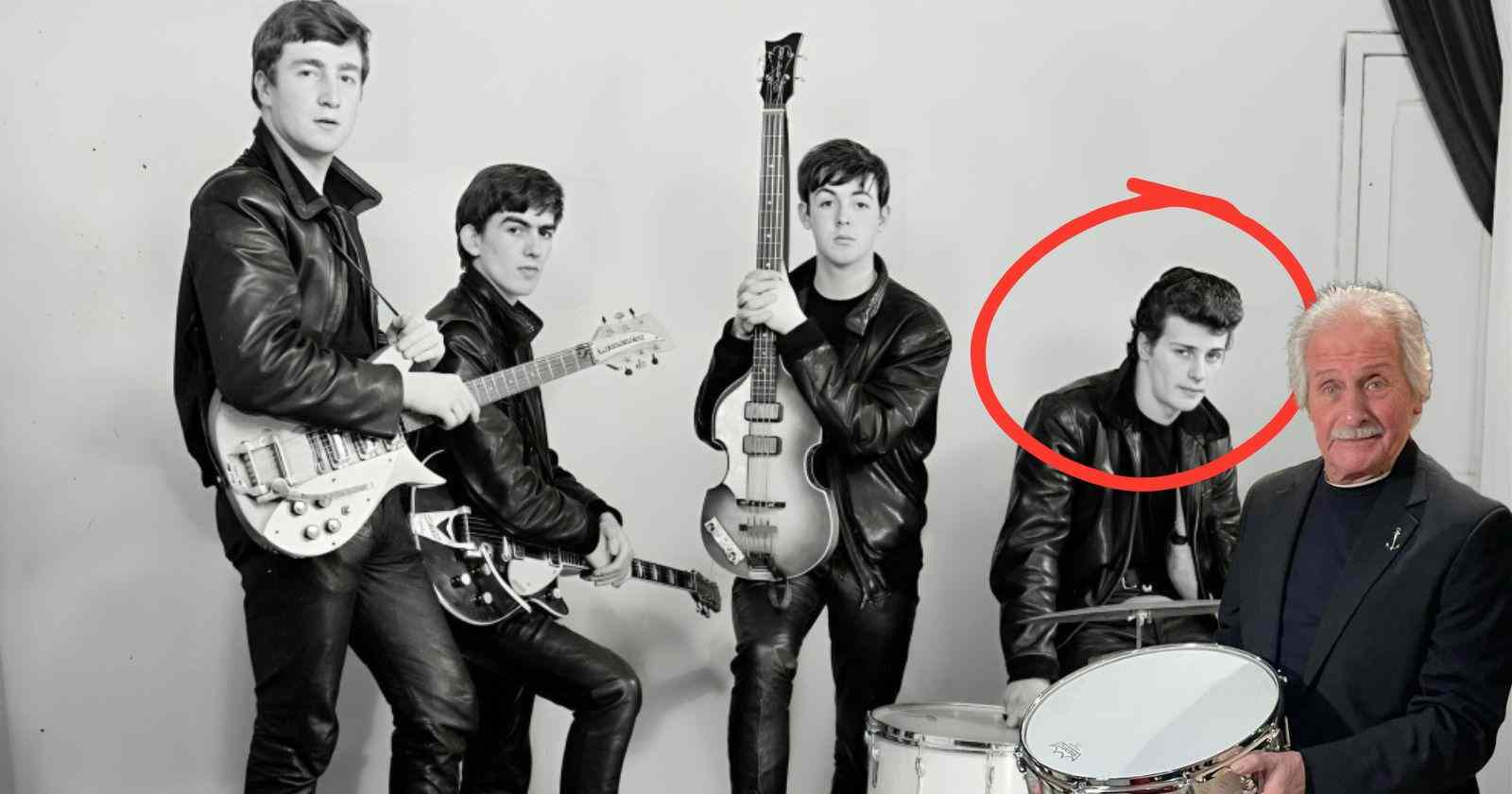Pete Best, the Forgotten Beatle: Revealing How the Band Dynamics Led to His Ouster
Pete Best, often referred to as “the fifth Beatle,” was a member of The Beatles during their early years before being abruptly replaced by Ringo Starr in 1962. At 82, Best has reflected on the circumstances surrounding his dismissal, offering insight into the inner dynamics of the band and the reasons behind their decision.

The Early Days and Pete Best’s Contribution
Pete Best joined The Beatles in 1960 and played a crucial role during the band’s formative years, including their grueling performances in Hamburg.
His mother, Mona Best, was instrumental in helping the band by securing early gigs at The Casbah Coffee Club, which she owned. Best’s athletic background in rugby and boxing contributed to his stamina as a drummer, and he was known for his commitment and clean lifestyle, abstaining from drugs during their Hamburg days.
Despite his efforts, Best’s drumming skills were often criticized by both the band members and producers.
George Martin, The Beatles’ producer at EMI, openly expressed dissatisfaction with his drumming, claiming it lacked the precision required for studio recordings. Other producers, such as Bert Kaempfert, and even critics described his drumming as inconsistent and unimaginative.
The Decision to Replace Pete Best

The decision to replace Best was difficult for the band, but it was one they believed necessary for their musical growth. George Martin advised The Beatles to find a better drummer, citing that Best’s timing issues and lack of musical flair were holding the band back. Paul McCartney and George Harrison later admitted the transition was painful but essential for the band’s success.
Ringo Starr, who had been drumming with Rory Storm and the Hurricanes, was known for his superior skill and unique energy. The Beatles often admired Starr’s performances when their bands crossed paths. When Ringo sat in for Best during a show, the band reportedly realized the difference he brought. Harrison described Starr as the “perfect fit,” while McCartney recalled the power and confidence Ringo brought to their performances.
Aftermath of the Replacement
Best was dismissed by manager Brian Epstein, a move that was described as cold and unceremonious. While Best continued to perform for a short period after his departure, the emotional toll was significant. He later pursued various careers, including working as a civil servant, and largely stayed out of the limelight.

In later years, there were no substantial efforts by The Beatles to reconnect with Best on a personal level. However, the band ensured he received royalties for his contributions to early recordings that were later included in the 1995 release Anthology 1, earning Best millions. Despite this financial gesture, there was no personal acknowledgment from the remaining band members.
Reflections from Pete Best
Reflecting on his time with The Beatles, Best has spoken candidly about the challenges he faced and the impact of his dismissal. While some viewed him as reserved and lacking the camaraderie of the other members, others, including John Lennon’s ex-wife Cynthia, described him as different in demeanor but committed to his craft.
Best’s story serves as a reminder of the complexities behind The Beatles’ meteoric rise and the sacrifices made along the way. Though his time with the band was short-lived, his contributions remain a part of their legendary journey to becoming one of the greatest bands in history.





